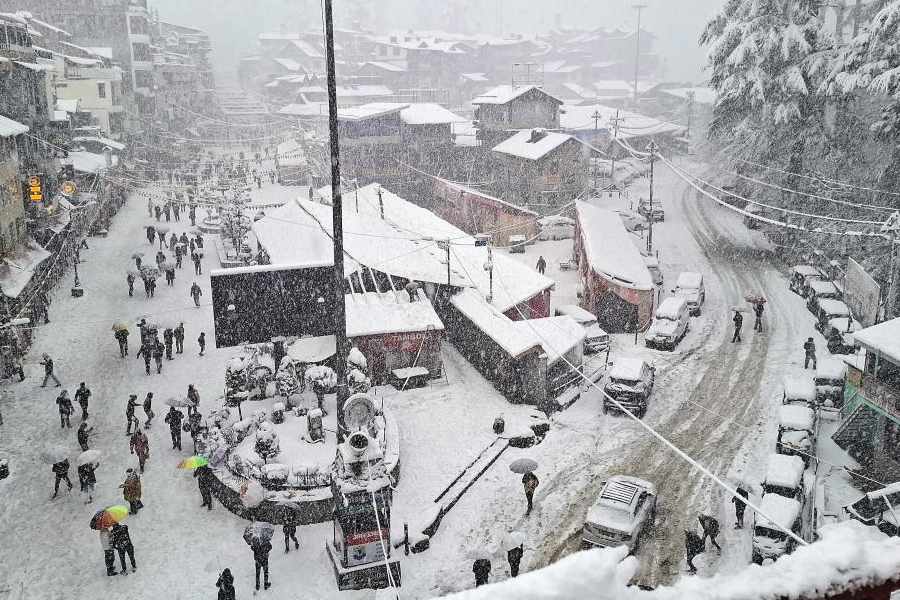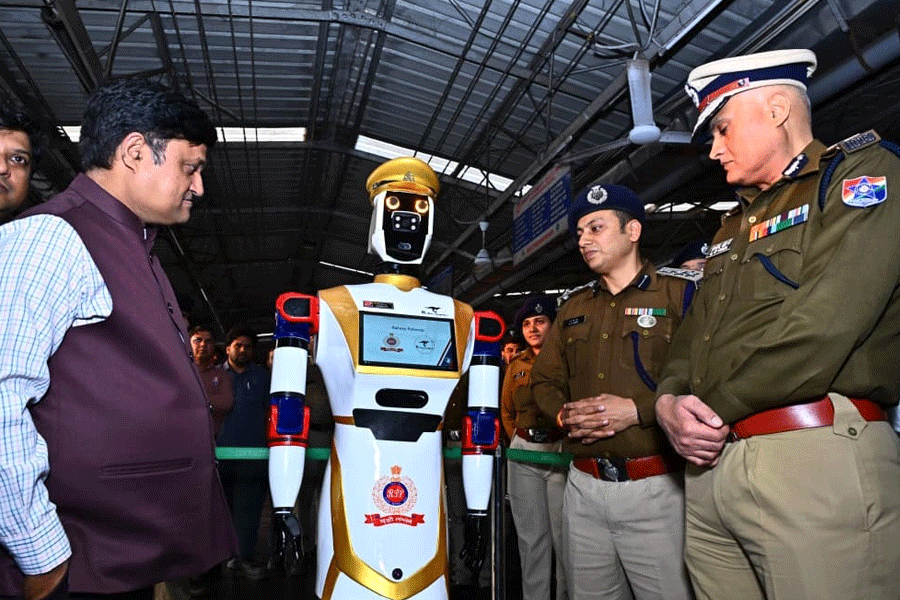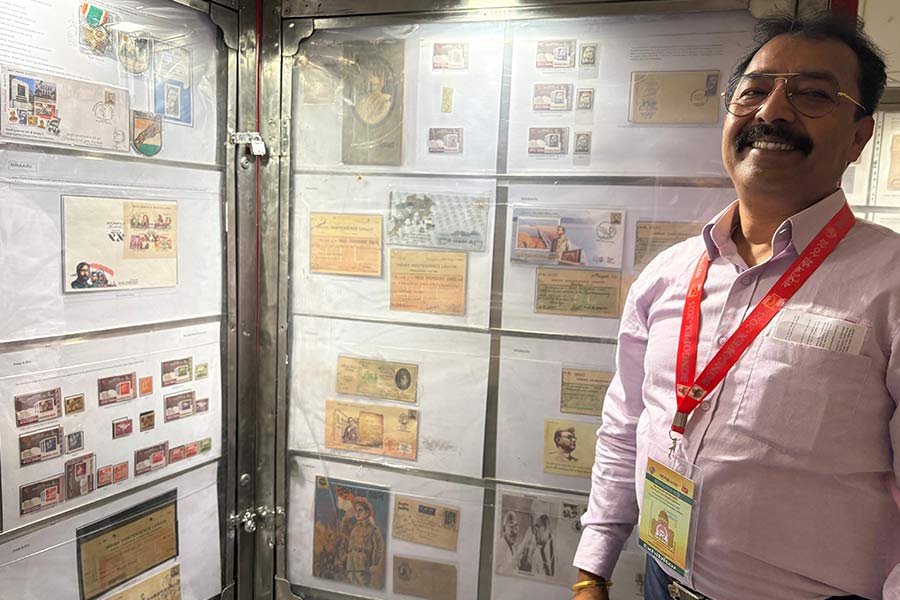 Friday, 23 January 2026
Friday, 23 January 2026
 Friday, 23 January 2026
Friday, 23 January 2026
From Ladakh to Tamil Nadu, skywatchers turned their gaze towards the moon Sunday night to witness a rare 'Blood Moon' or the total lunar eclipse.
The earth's shadow started covering the lunar disc at 9:57 pm as the moon played hide and seek in the cloudy skies with monsoon rains lashing parts of the country.
The earth's shadow will completely cover the moon at 11:01 pm, turning it coppery red, putting up a rare display of 'Blood Moon'.
"The Moon will be fully eclipsed from 11.01 pm to 12.23 am for a duration of 82 minutes," Niruj Mohan Ramanujam, Head of Science, Communication, Public Outreach and Education (SCOPE) Section, Indian Institute of Astrophysics, said.
The moon appears red during lunar eclipses because the only sunlight reaching it is reflected and scattered through the earth's atmosphere, B S Shylaja, former director at Jawaharlal Nehru Planetarium said.
The Indian Institute of Astrophysics has turned the telescopes at its campuses in Bengaluru, Ladakh, and Tamil Nadu towards the moon and were streaming the progression of the total lunar eclipse live on social media platforms.
Cloudy skies played spoilsport at several parts of the country, but the live streams set up by astronomy enthusiasts world over made up for the disappointment due to overcast skies.
The total lunar eclipse was visible from across Asia and parts of Europe, Africa and west Australia.
Sunday's eclipse was the longest total lunar eclipse visible from India since 2022 and the first since July 27, 2018 to be observed from all parts of the country.
The next total lunar eclipse will be visible from the country on December 31, 2028.
Eclipses are rare and do not occur every full or new moon because the moon's orbit is inclined about 5 degrees to the earth's orbit around the Sun.
A lunar eclipse occurs when the earth comes between the sun and the moon, casting its shadow on the lunar surface.
Unlike solar eclipses, observing a total lunar eclipse does not require special equipment and is safe with the naked eye, binoculars, or a telescope.
In India, lunar eclipses are linked to several superstitions, with people often avoiding food, water, and physical activity, fearing "poisoning or negative energy". Some even believe eclipses are "harmful to pregnant women and their unborn children".
However, astronomers say lunar eclipses are merely shadow phenomena, understood long before Aryabhata's time, and "pose no risk to people or animals".
Unfortunately, certain non-scientific beliefs have led to unfortunate incidents during past eclipses, underscoring the need for scientific awareness. It is perfectly safe to go outside and eat while enjoying this magnificent celestial spectacle, said Ramanujam.







